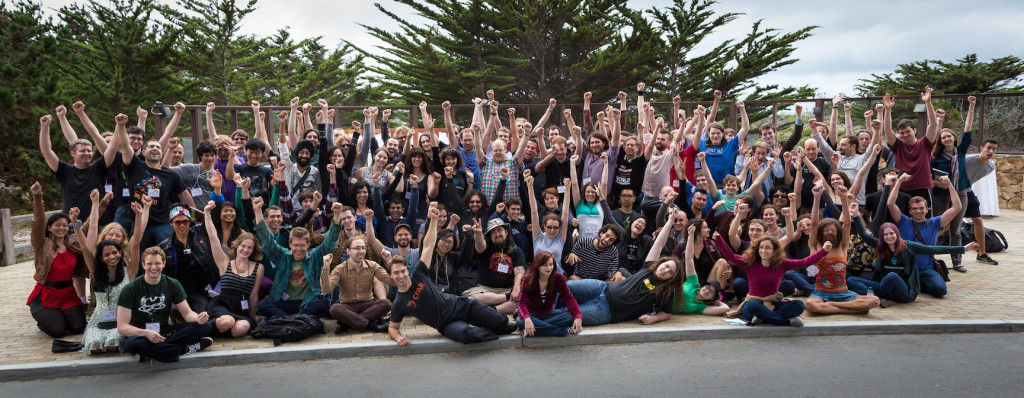
Last month over 100 CFAR alumni from around the world converged on Asilomar State Beach, on the edge of Northern California, for our second annual reunion. And I know I wasn't the only one whose frequency of exclaiming, "Whoa! Interesting. I hadn't thought of that before..." was unusually high that weekend.
So I polled some alumni reunion alumni and asked them: What's something you took away from the CFAR reunion weekend?
Duncan Sabien:
If you don't have any Grand Ideas or Ambitious Plans, one of the best ways forward is simply to do ALL of the obvious, small things. "Shut up and do the impossible" is a great meme to have in the community, but all too often I find myself skipping over the step "shut up and do the possible," which is almost as valuable and just as rarely done.
Romeo Stevens:
In the same way the knobs & dials on a device form a user-friendly interface that lets you modify the device's internal parameters, good habit formation techniques form a user-friendly interface that lets you modify your behaviors. So don't make your plans things that the virtuous superhero version of you would do, instead make them like good user interfaces in the sense that you don't need to think hard about them for them to work.
imuli:
If you can measure accomplishment by how much you've changed for the better, instead of how much you have left to change, the reward curve comes out the helpful way.
Jordan Tirrell:
Instead of sitting down to write an entire essay, start out by writing an email or personal message. [Julia's note: I've already used this, to good effect!]
Lachlan Cannon:
I think I left with the distinctly new impression that not only are the individual technqiues we've learnt from CFAR useful, but that we can learn to piece them together into larger techniques. I went in thinking of them as complete units, (albeit ones where some had others as prerequisites) and came out thinking of them as an initial set of building blocks we can add to, and piece together to make other things.
Daniel Satanove:
I thought I was good at introspection (especially listening to system 1), being an introvert. But now I see that there is so much room to grow that skill, and that my lack of skill in that area was making some of my habit building and rationality interventions fail.
... and here's one of mine:
When people within a community disagree with each other -- for example, about ethics -- they should limit themselves to using only persuasion tactics that are more effective for true ideas than false ones. For example, anyone could threaten social ostracization if you don't adopt Policy X, but this tactic could be used indiscriminately regardless of whether Policy X is good or bad. Public betting and Aumanning, by contrast, are more effective when you're right then when you're wrong.



